10 Major Cultural Differences Between Japan And Korea
Japan and South Korea, these two countries have historically shared so much culture with one another.
There are, in fact, so many similarities between Japan and Korea.
It sometimes confuses Westerners.
However, both countries have their own unique culture and rich history.
And they are actually very different if you see them in depth.
So here are 10 major cultural differences between Japan and Korea.
Table of Contents
1. Language

The first thing that distinguishes their culture is the language.
Japanese is based on Japanese alphabets (Hiragana and Katakana) and Chinese characters (Kanji).
As for Korean, they use Hangul.
Korean people used to use Chinese characters as well, but they completely abolished it in the middle of 1980s.
However, the use of formal language and grammar are still very similar, and they share a lot of words with one another.
So it is often said, Japanese is the easiest language to learn for Koreans and vise verse.
2. Cultural Influence From Others
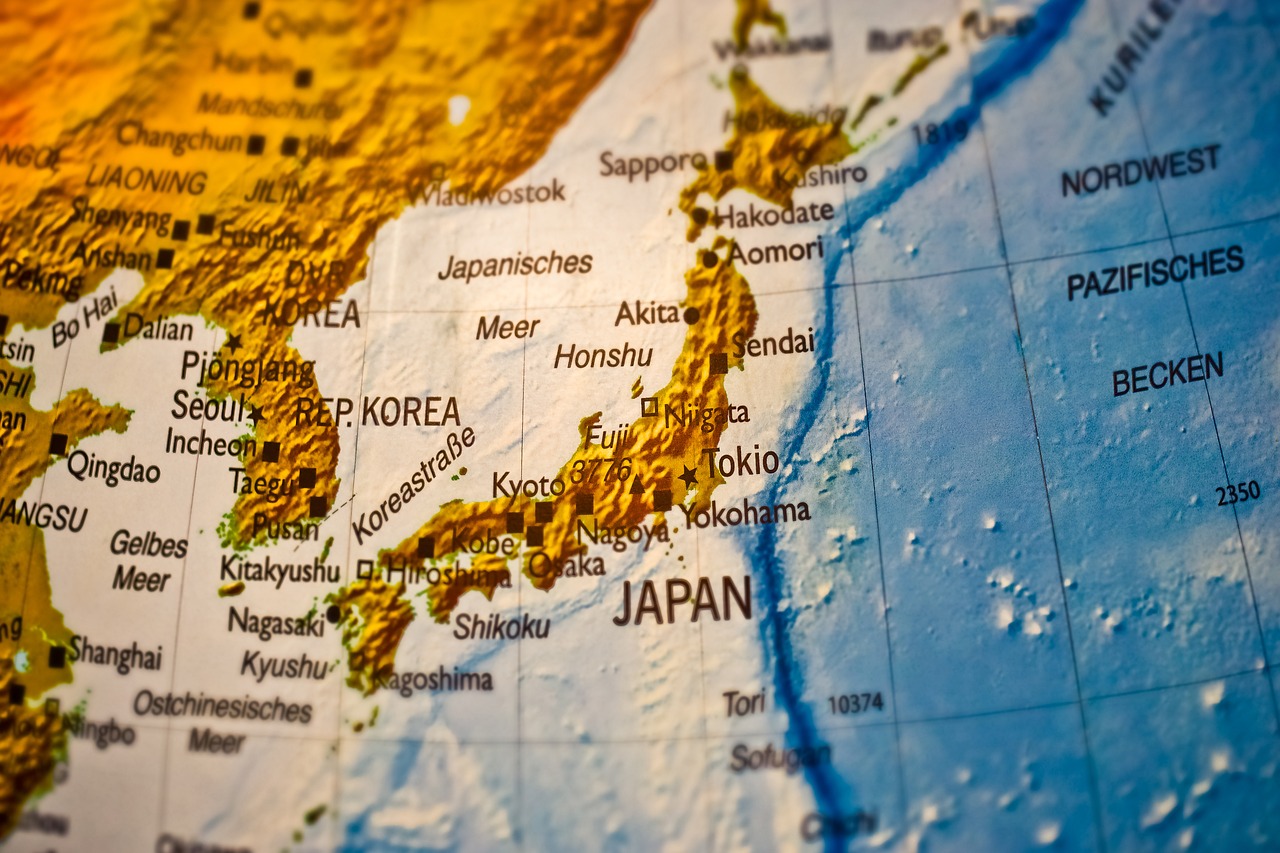
After all, Japan is an island country while South Korea constitutes the Southern part of the peninsula located in the Asian continent.
It drastically differentiates the two cultures.
Historically speaking, Korea has had significant cultural impacts from China and the continent.
Of course, China has culturally influenced so many other countries.
Japan is no exception.
But it was a thousand years ago, and Japan was isolated in most of its history due to the isolation policy during Samurai government.
Instead, it is to some degree more close to Western culture after 19th century, when Samurai Shogunate was abolished.
Thus, Korean culture is much more similar to China, while Japan is closer to the West.
3. Food

The geographical factor, mentioned above, also changed the way they consume food.
As you may know Kimchi, Korean food is mostly spicy, and they eat with spoon, fork, and metal chopsticks.
They use metal chopsticks so they don’t get damaged by fire when they do a Korean barbecue.
On the other hand, Japanese people love fish as you may know sushi.
And they use thin chopsticks made of bamboo since it is easier to pick bones from fish while eating.
Generally speaking, Japanese food is more complicated and more confusing, but Korean food is very simple.
4. Confucianism
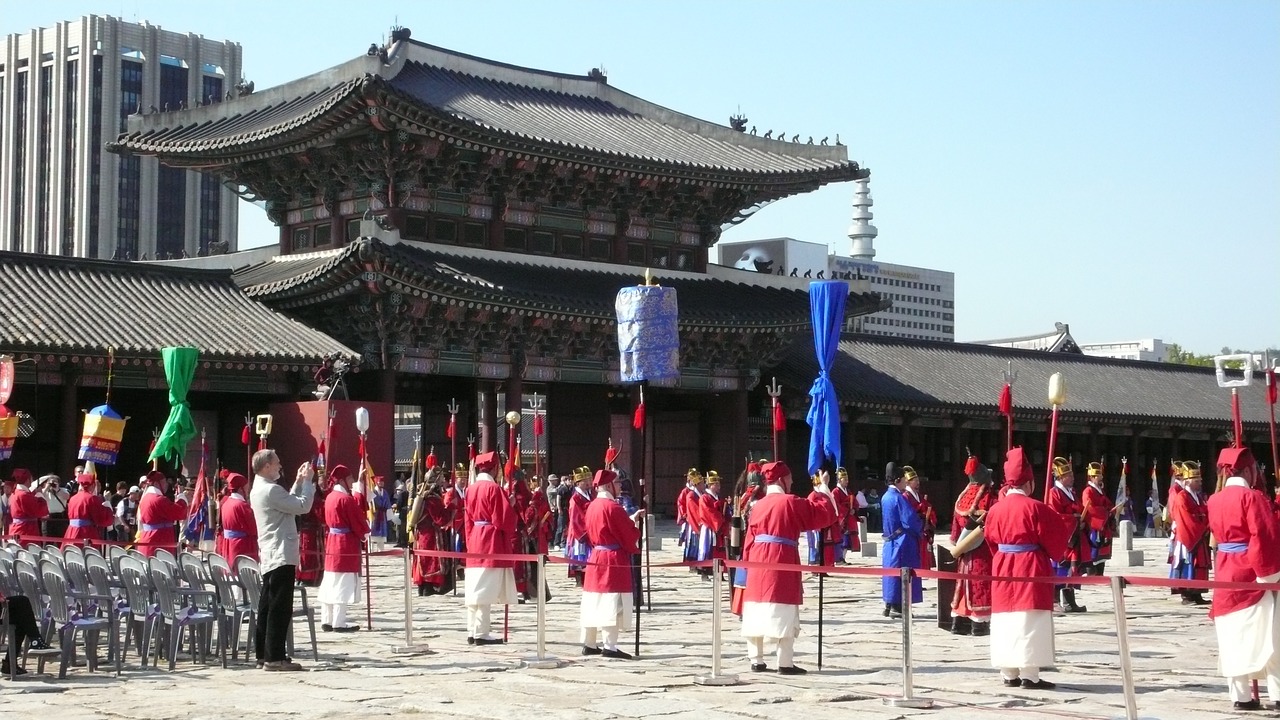
The biggest impact from Chinese culture on both countries is probably Confucianism.
While Japan still practice the way of Confucius somewhat, it is way more common and very important in Korea.
So the family roles in the Korean culture are very different.
In Korea, it is common, especially for men, to speak in honorific language (Jondaesmal) when they talk to their parents or grandparents.
So it is a sign of showing respect to elderly in Korea.
Not only within family, age is very important in Korean society, and they use honorific speech to older people all the time.
Because of that, age is sometimes the first question that Korean people ask each other, but asking someone’s age is considered rude in Japan, especially to a woman.
5. Religion

Christianity is the major religion in South Korea.
On the other hand, only around 1% of the population claim Christian belief in Japan.
Shinto is the Japan’s native religion and more than half of the population in Japan believe in Shintoism in some way.
Speaking of Shinto, the Emperor of Japan has the highest authority in Shintoism, and Japan’s holidays are mostly based on Shinto rituals.
Many Anime and Japanese cartoons are greatly inspired by Shinto.
6. Internal And External Collectivism
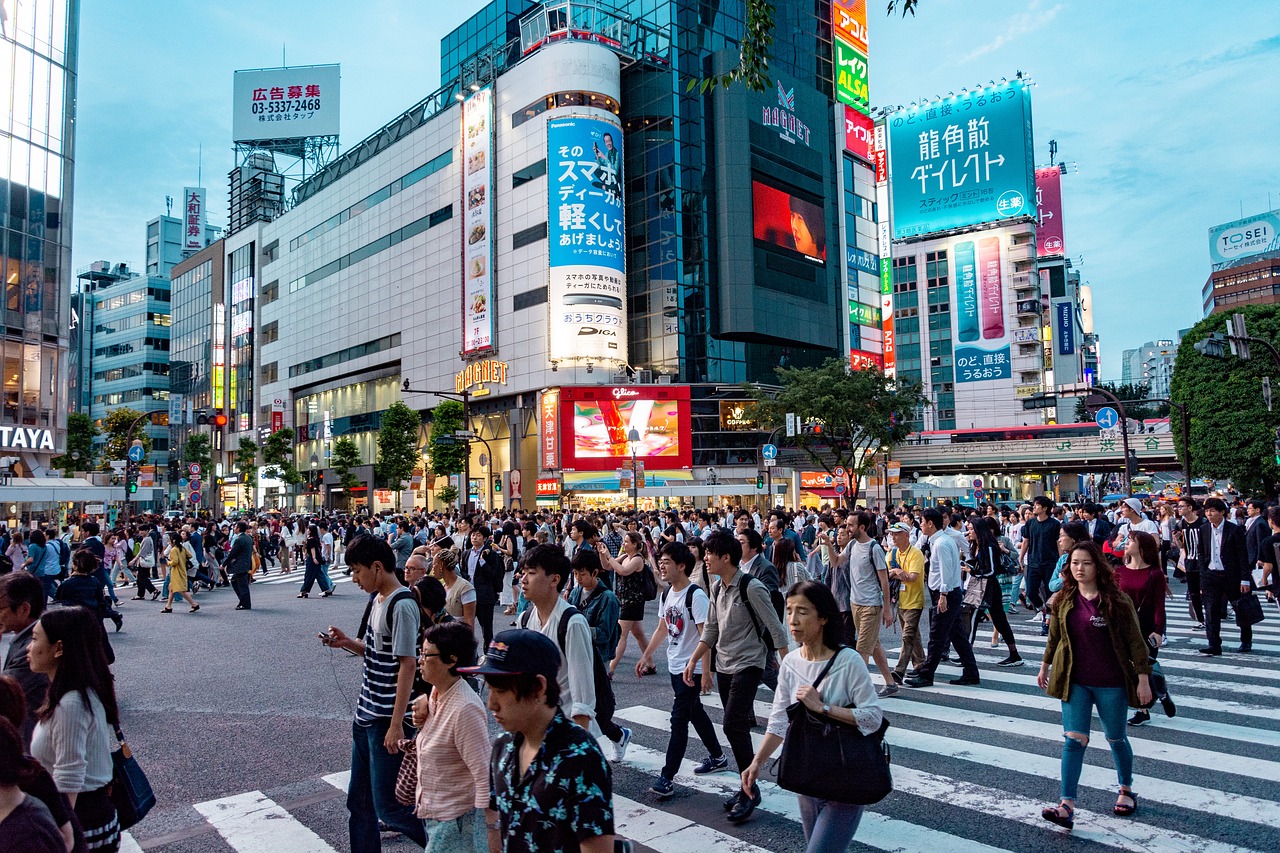
Both countries have collective society, but Japan has an external collective culture, while South Korea has an internal collective culture.
It means Japanese collectivism is more society-centered, while Korean collectivism is more family-centered.
In Japan, following social standard and social order is very important.
Considering how others feel about your act and behavior is a big deal.
However in Korea, it is more important to be a part of family rather than what strangers in the society think of themselves.
It’s more related to the culture of Confucius, which heavenly emphasizes family loyalty.
If you are a foreigner, it’s easier to make friends in Korea than Japan.
While Japanese people tend to create barriers and not tell their honest feelings, Korean people are relatively friendly and treat you like a part of family.
But once you did something wrong to someone in your group, you are out of “family”, and they would tell you like “I thought you were one of us.”
It’s obviously oversimplified, but it reflects only culture.
7. Society
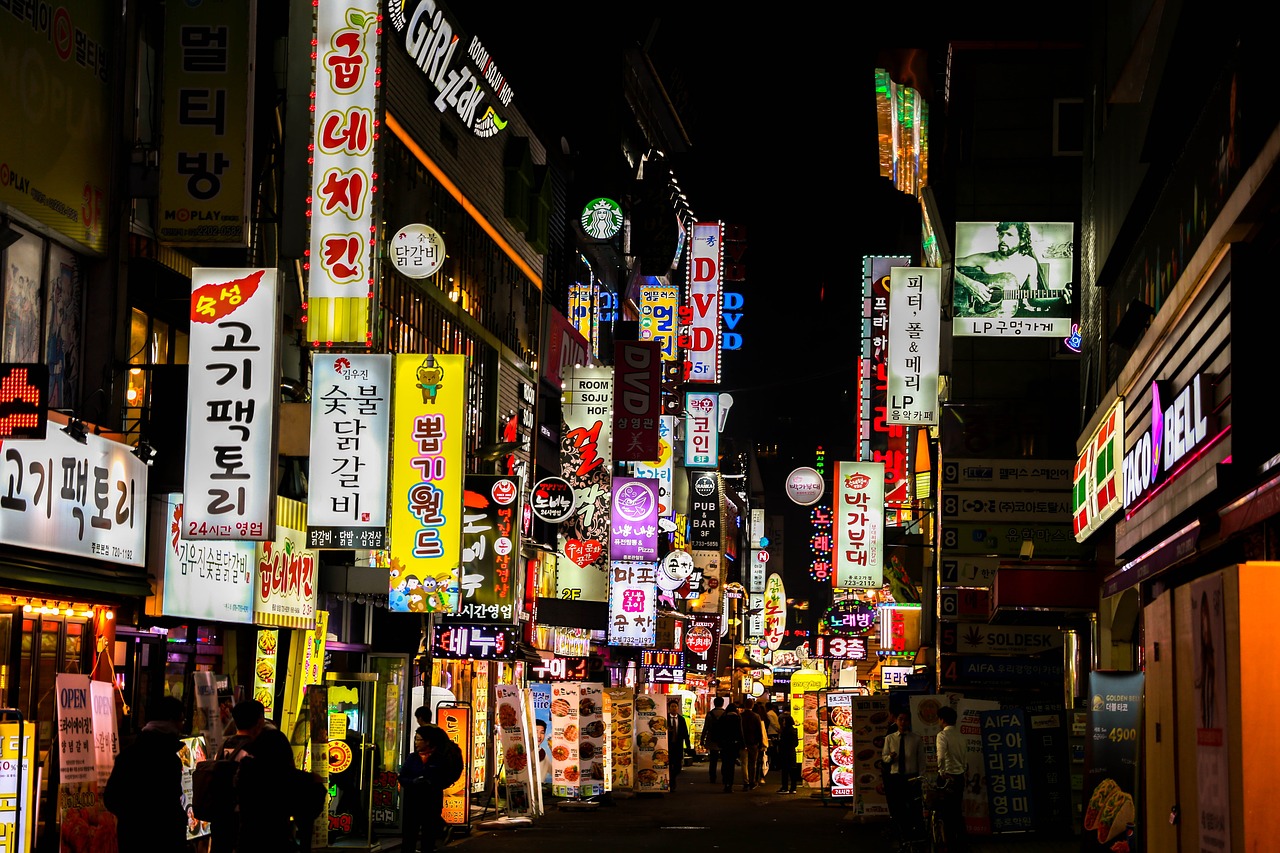
From the aspect of society as a whole, Japan is more quiet and peaceful, while South Korea is more fun and entertaining.
Personally speaking, if you like to see natural wonders and traditional architecture, Japan is good.
But for those who like to enjoy nightlife and want to go shopping, South Korea is more recommended.
8. Work Ethic
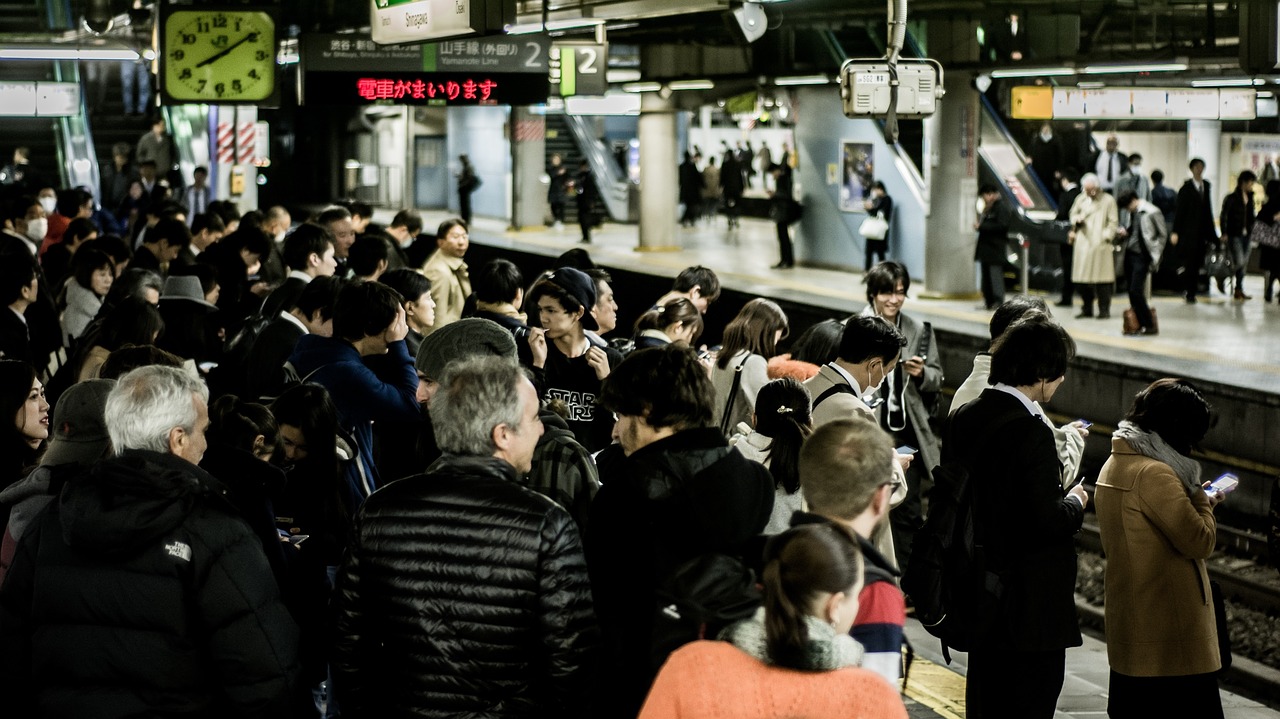
Korean people are productive and efficient at work.
But the problem in the Korean work environment is people sometimes are over competitive and little bit hasty.
Japanese work ethic values order and prudence over efficiency and competition.
So it often leads to overwork and unnecessary meeting.
9. Patriotism
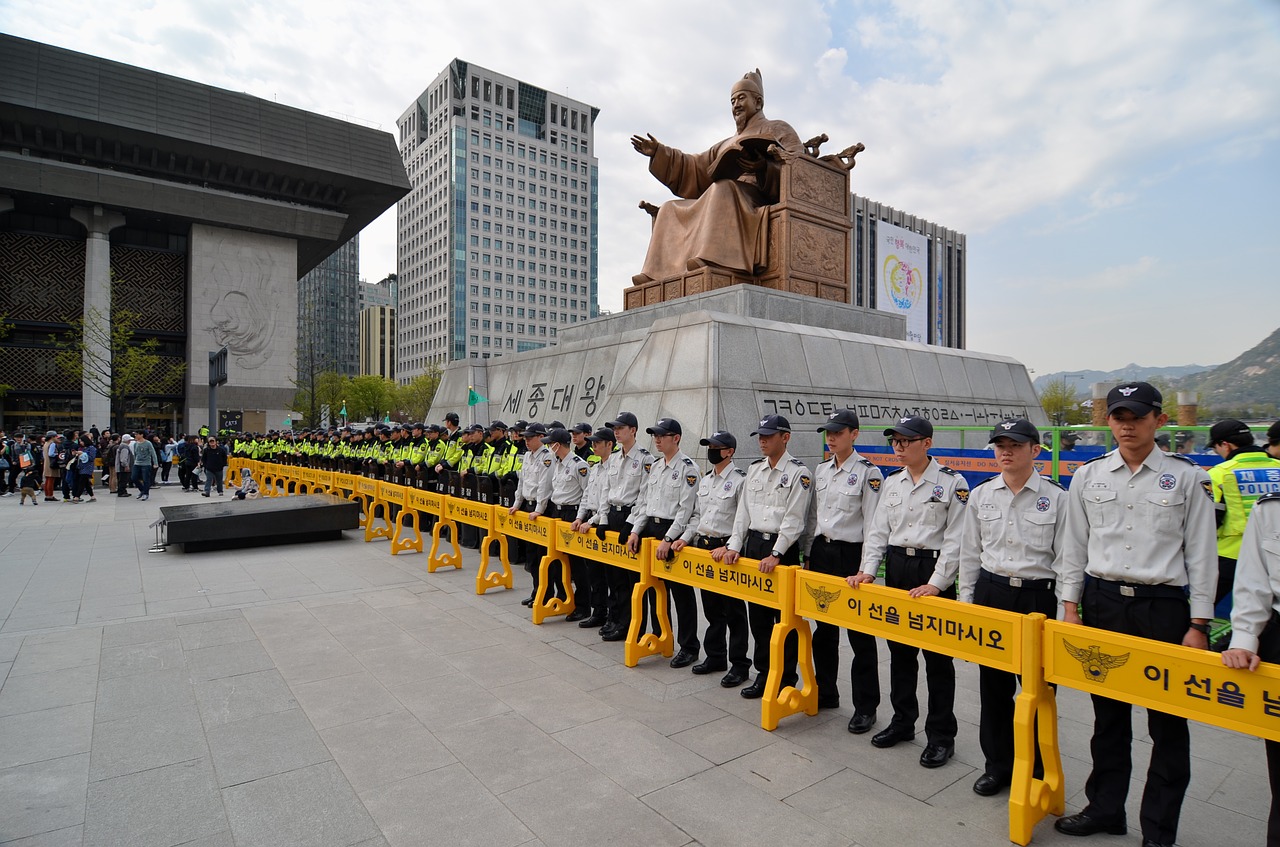
Again, Korea is a peninsula in Far East Asia.
Due to the fact, the history of Korea is sometimes considered as one of the most tragic of all Asian countries.
Looking at history, people of Korea have fought to defend their land from invasions from its neighbors.
This makes the strong sense of national pride among themselves.
It doesn’t necessarily mean Japanese people are not loyal to their country.
There are many types of people when it comes to politics and all.
But it is also true that young generation in Japan don’t really care, comparing to young people in South Korea.
10. Overall Culture
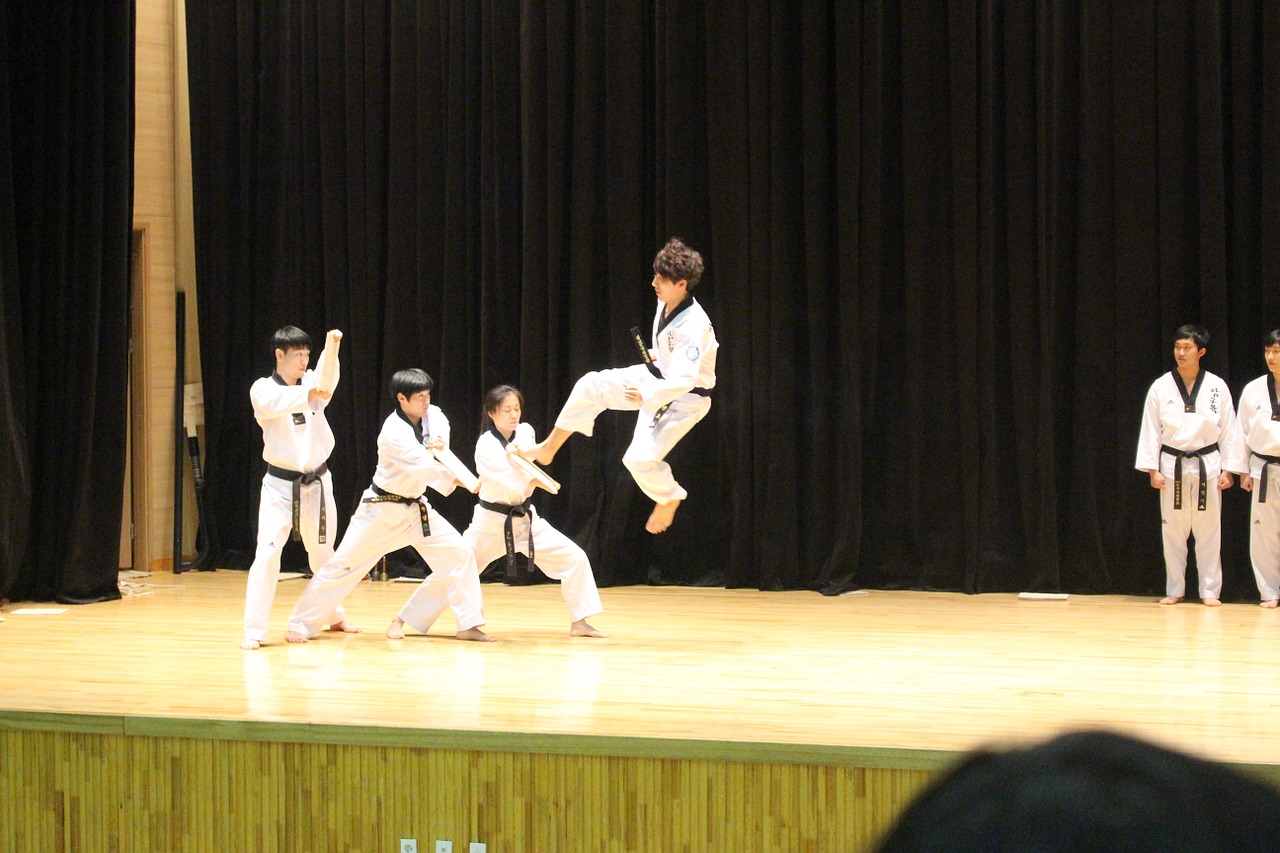
Finally, I will just write down the overall differences.
Korea has K-Drama, but Japan has Anime.
As for music, Korea has K-POP and Japan has a bunch of idols.
About Art, Japanese art is more elegant and intricate, but Korean Art is more elaborate and creative.
Japanese traditional clothes are Kimono, but Korean clothes are Hanboks.
The most well-known martial arts in Korea is Taekwondo, but Karate is Japanese.
These differences that I analyze are only small parts of all, but there are uncountable differences between two cultures in reality.
If you travel to both countries, you may realize those things.
However, it is still a generalization of people and the culture, and it doesn’t necessarily apply for all the individuals in the countries.
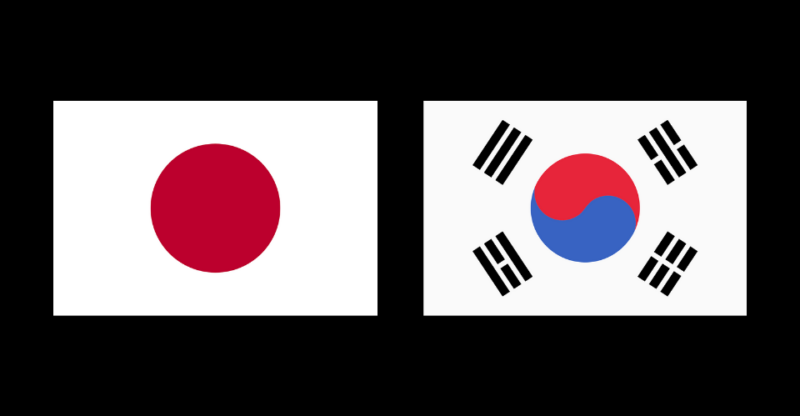
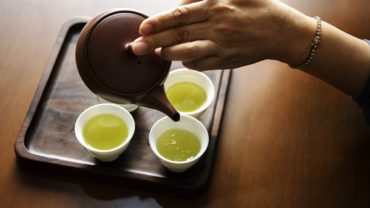

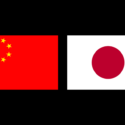

Ito-san, I know Japan and Japanese culture much more than Korea and Korean, but I think you’ve done a good job of identifying the differences while also pointing to similarities. I also appreciate that you make the point that these are only generalities that will not be true for every member of each society. There’s a large amount of variation within every society, so while it’s important to know the culture and history of one that you are visiting, it’s also important to keep an open mind about each individual. Thank you for doing this.
Thank you for reading the article and your awesome comment.
Yes, even though it’s very important to know another culture and way of life, we cannot generalize one culture as a whole.
Japan and Korea have so much in common, yet they both have rich history and culture.
Again, thank you for your comment and thought!
thumbs up
I thought this was very well-balanced. Considering that Koreans and Japanese have not had a perfect history of getting along.
Good job.
I enjoyed reading. Thank you for the information. In learning to speak Korean and am very interested in Asian culture. I appreciate, also, that you mention the exception to the rule, that n not to stereotype.
Hello,
I would like to learn more about internal vs external collectivism and would like to know your sources of information please.
Good read but not sure how Japanese food is more complicated and Korean food is simpler. Don’t the Koreans eat spicy and the Japanese don’t?
What do you think is the impact on Japanese culture and arts relating to both coutries relations?
Beautifully written.. Living in Britain, i have been watching several korean, say KBC, serials since the lockdown on Netflix.. Great culture, sometimes get a feel thAT koreans are more money minded than anyone else??
Regarding Korean food / cousin, the regional diversity, old traditions, and difficulty level of preparing make it far from simple. There are certain age based etiquettes that are observed during dining/drinking. The feast for ancestor worship jaesa/charye especially has a lot of complex traditions.
I have read that the Japanese are more friendly and will accept you into their society more so than Koreans. You say differently. Which one is correct.
I did, thoroughly enjoy your article. Thanks
I always thought that it was okay to ask for ones age in Japan, so you can use the right honorific such as chan or san. I thought it wasn’t considered rude there. Was I wrong all the time?
Thank you for a great job. As a Korean, the listed facts are generally believed. One tiny comment, Korean uses metal chopsticks not only do we want to avoid firing while eating Korean BBQ, but also It is economical in terms of life span compared with Wooden ones. Why it is a flat-rectangular shape? In order to use less metal as possible. These days, we can find many rounded yet light chopsticks, which are easier to handle for many people rather than flat shape.
Why no mention of South Korea and North Korea ?? Which, while sharing a strong history, are now two completely different countries. There’s no such thing as “Korea” as a country.
The reason is quite obvious to me: I know very few people who are acquainted well enough with North Korea to make comparisons… It’s one of the most isolated countries in the world. All we know about it comes from the official statements of their political regime or the testimonies borne by a few refugees who managed to cross the border.
So yes we know it’s a gruesome dictatorship and they have a funny list of authorized haircuts, but apart from this, Pyongyang’s cultural life or mentality isn’t exactly something you can learn about in your local National Geographic
I think a lot of what is listed here is opinion rather than fact. I think the culture furthest from the West is Japan’s. In Japanese culture, telling someone a flat “no” is a difficult concept while communications with Koreans are a lot more straight forward. Koreans are much more inclusive of other cultures than the Japanese, who gravitate to interactions with other Japanese people. Koreans also have a tendency to share their thoughts as we do in the West while the Japanese are highly reserved.
This is opinion comments from someone who sounds like the only world travel is on the internet. He simply parrots the stereotypes and racially tinged monologue of the nationalist. There is jo insight or fact here, might as well ask your racist uncle about his thoughts of south korea. Readers are more ignorant after reading this rag.
Thank you! This was helpful.
As a westerner I actually disagree with Korea being more creative than Japan and I will give you a few reasons why I mean so many quirky and eccentric fashion styles have originated in Japan like Lolita, Visual Kei, Gyaru, Decora, Bosozoku and Rocabilly i have never seen such intricate, unique and creative styles of clothing reach such popularity with a strong following worldwide, i cannot think of many equivalents. And that is only one example. Japan to me is home to many creative, non conventional figures that push what can be entertaining and enjoyable, who break cultural norms and innovate culture, or at least thats my perspective as a British person, from the film and tv industry to books to art to music to fashion to technology. The anime and manga industry is constantly reinventing and upgrading and sharing, fresh, new, unique and enticing stories and characters from a wide range of people. I do think Japanese are also more open to change and less rigorously traditional. Japanese people usually not always tend to be more open to having relationships with westerners and not just romantic ones whilst Korean culture tries to close off more from outsiders and tend to prefer people to stay with their own kind, and no not all Koreans are like this especially younger ones but they definetly seem more patriotic and protective of their culture to me. When I think of Japan I think of rich creativity and innovation but then maybe I have not engaged with South Korean culture much beside the Kpop Industry and K Dramas.l I know there is so much more there beyond that I haven’t discovered.
I think its because North Korea is prison land and way more cut off from the real world.
I absolutely enjoyed reading this article. Thank you! but can I ask, why is it rude to ask their age in Japan?
Found that you overemphasised christianity in korea, as buddhism is actually the most popular religion. After that then in 2nd place is protestantism and then catholicism. It’s only when one combines catholicism and protestantism under the term “christianity” its the most popular in statistics, but in korean society they are actually quite seperate.
With Martial arts I think the traditional route of explanation with koreans focusing more on archery and japanese focusing more on the sword is more suitable, rather than a modern karate inspired sport of taekwando for korea and karate which comes from Okinawa a totally seperate culture.
In my opinion from living in both countries, studying both languages, studying both buddhist and confucian philosophies in the context of both cultures, I think this representation could be improved for the differentiation between Japan and korea.
I am a total amateur. We will visit Japan and South Korea in 6 weeks time. I found this article absolutely the best that I have read regarding Japanese vs Korean culture. Culture or the shared understandings of a group is so tricky. I am extremely grateful for this excellent article. Jim, from Sydney, Australia.